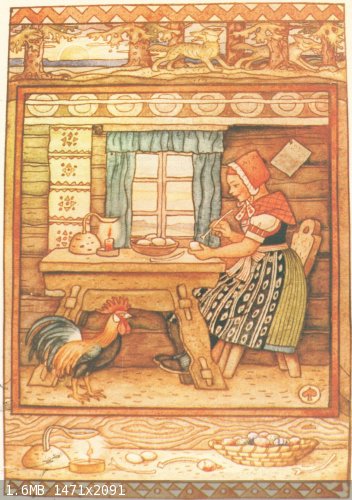Wendish Folklore Portfolio 11. JUTRY W MUŽAKOWSKEJ HOLI - Easter in the Muskau Heath
11. JUTRY W MUŽAKOWSKEJ HOLI - Easter in the Muskau Heath
Translated by Elmer Hohle

The Eastertime tradition(folklore, custom) came to have special significance on account of Christendom's persistent spread in Lusatia. Nevertheless
many of the customs are rooted in and evolved from a much earlier period of history.
On the Sundays before Easter, all the maidens, who had sat together the whole winter time in the spinning room, gathered together on the singing
benches. Permanent benches, maintained in good repair by the young men, were prevalent near the church or in a suitable location in the village
square.
A lantern was hung on a pole that stood in the center, for the singing often continued after dark. Under the direction of a song leader - the cantor -
they rehearsed spiritual songs, appropriate for singing at Easter. The night before Easter was celebrated with special festivity. As soon as it struck
midnight, the young men began to ring the church bells, and the young women formed themselves into a group. The half-way put on mourning clothes. The
singing procession moved from house to house to the very edge of town. They would receive some cake or a gift of money from each head of household. At
dawn the maidens would disperse.
This custom is reminiscent of the ancient custom of riding around the fields on horseback in order to pray for a profitable and bountiful harvest
season.
Each maiden would get a jug that was locked up at home and, without saying a word, would silently try to sneak undetected to a brook or spring that
flowed towards the East and dip up some "Easter water." This water was touted to have healing powers. It was kept and saved throughout the year. It
supposedly healed eye disorders and promoted health and beauty. Of course the young men would be eagerly lurking, watching for the water-toting
maidens. They would try to entice the young ladies to converse with them. Then, of course, the healing power would be lost, and the "Easter water"
became nothing more than “Yakkity Yak” or Babbling Water.
|